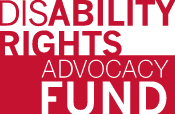Voices of persons with disabilities in the rural island villages of the Pacific rarely reach the capital where treaties are ratified and decisions on policies and budgets are made. The bureaucratic nuances of these national governmental actions are often lost to those in the rural areas.
Fiji ratified the Convention on the Rights of Persons with Disabilities (CRPD) in June 2017 with persistent advocacy from the DPO movement, including from a National Coalition led by the Fiji Disabled Peoples Federation (FDPF) funded by the Disability Rights Advocacy Fund.
The coalition also includes the United Blind Persons of Fiji and the Psychiatric Survivors Association. They are advocating for the mainstreaming of disability inclusion in employment, education, and health sectors, as well as to promote the use of relevant data on persons with disabilities for the 2018 census.
In Fiji, Cakaudrove Province has set the trend for other provinces to ensure disability inclusion at the village level. In these rural areas, one or two champions can make a difference for persons with disabilities.
Mr. Isimeli Koli is an organizer and motivator in Buca Bay, located in Cakaudrove Province. He knew that empowering persons with disabilities was possible by using a familiar and indigenous concept of “Vanua,” which conveys a sense of belonging and identity to their land, culture, and society. Steeped in indigenous values, Koli was able to translate the articles of the CRPD into the realities and traditions for villagers in Buca Bay.
He emphasized that persons with disabilities are an integral part of the village community and also involved women and youth groups in their outreach and education.
Since his introduction to the CRPD, Koli —who is also the president of the Buca Bay DPO and a former village headman— ensured that development projects were disability inclusive. As a result, the villagers and government representatives have:
- Allocated a seat for a women with disabilities in the Cakaudrove Indigenous Women Society, a community based organization that provides representation at the provincial level
- Constructed ten flush toilets for persons with disabilities and elderly persons
- Constructed wheelchair accessible footpaths throughout the village
- Constructed government-approved accessible features in the community hall, which is used as the evacuation center for cyclones
- Ensured access to the social protection allowance for persons with disabilities and elderly persons
- Facilitated participation of persons with disabilities in microfinance initiatives and vocational training
Koli recognizes that working in rural islands is often difficult given their geographical location, communication channels, and transportation costs.
“In spite of these challenges,” he says, “I continue to receive requests from other district and government representatives for advice on how to be more disability inclusive. Our way forward is to work with DPOs from the Bua and Macuata provinces to promote how disability inclusion is in line with our core community and indigenous values.”
Credit: Elenoa Kaisau, FDPA

